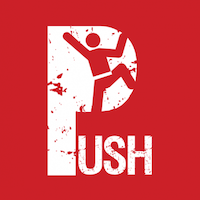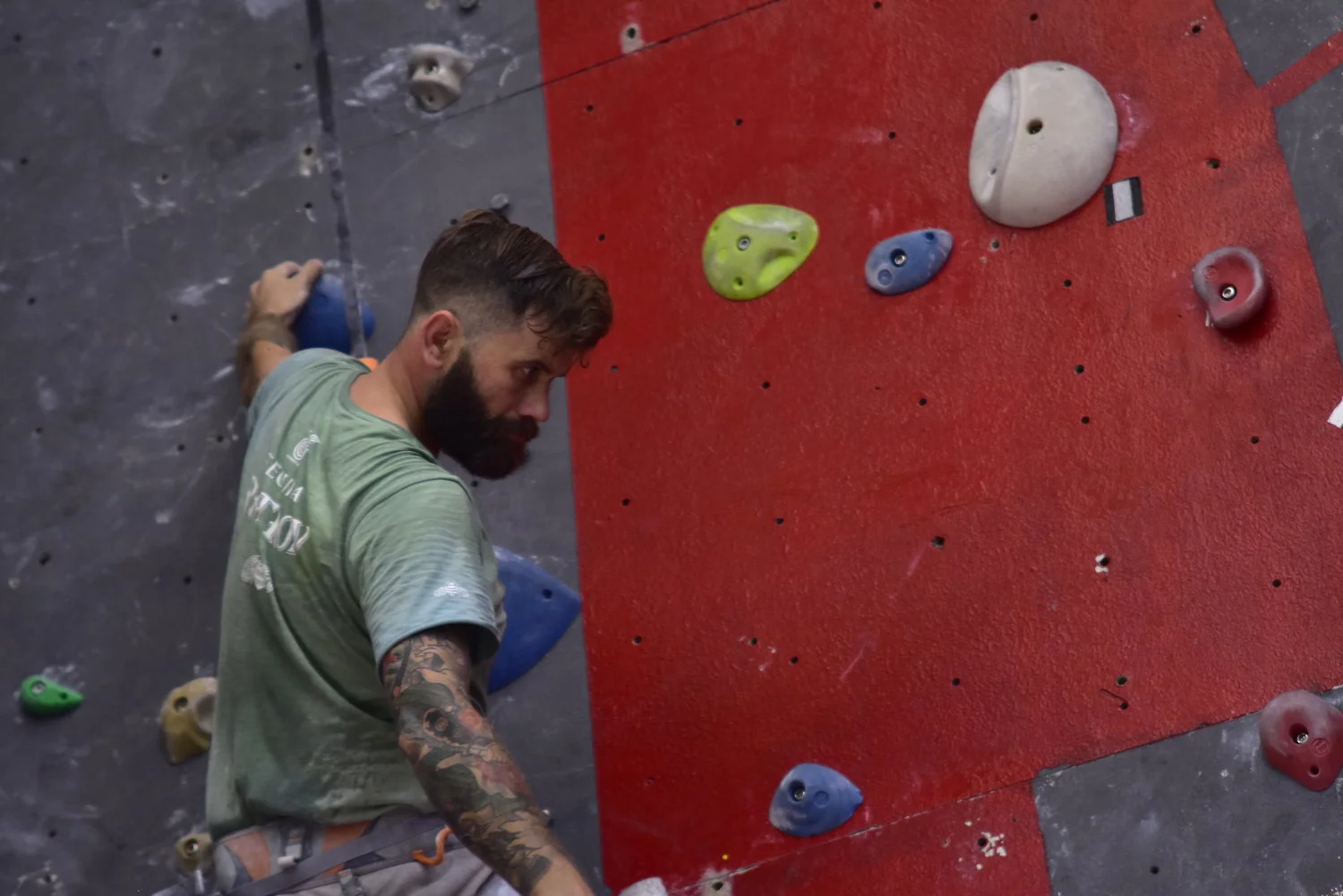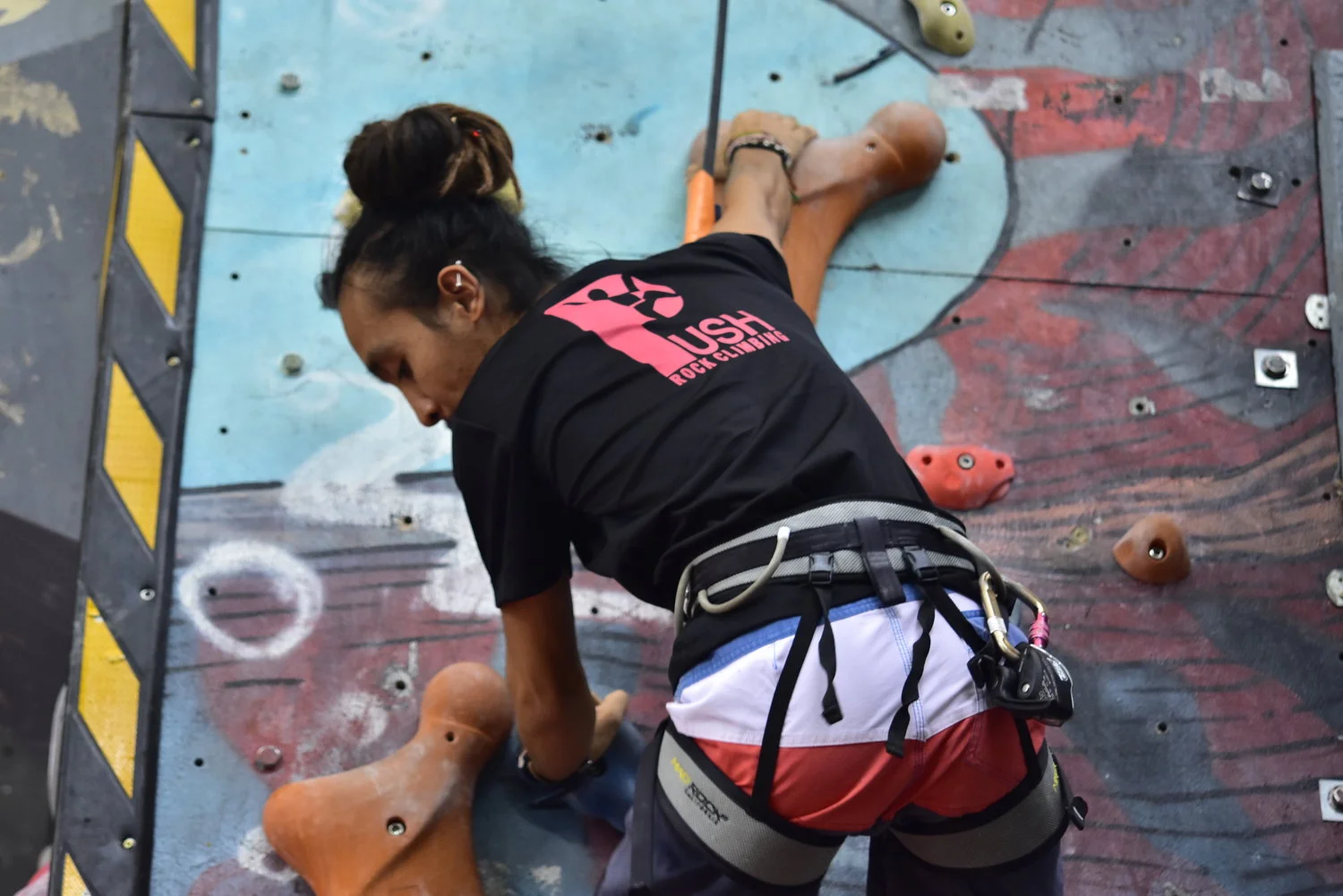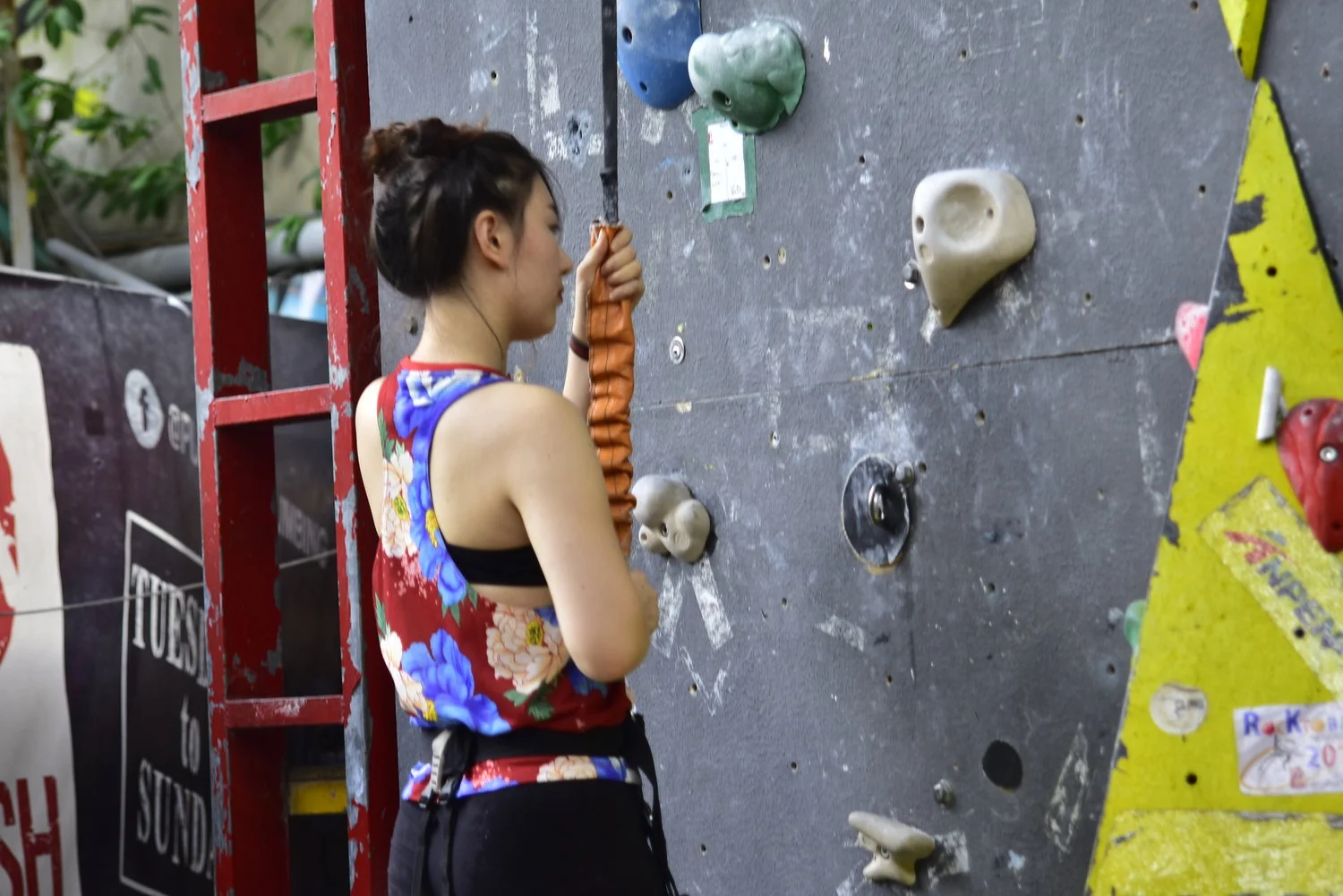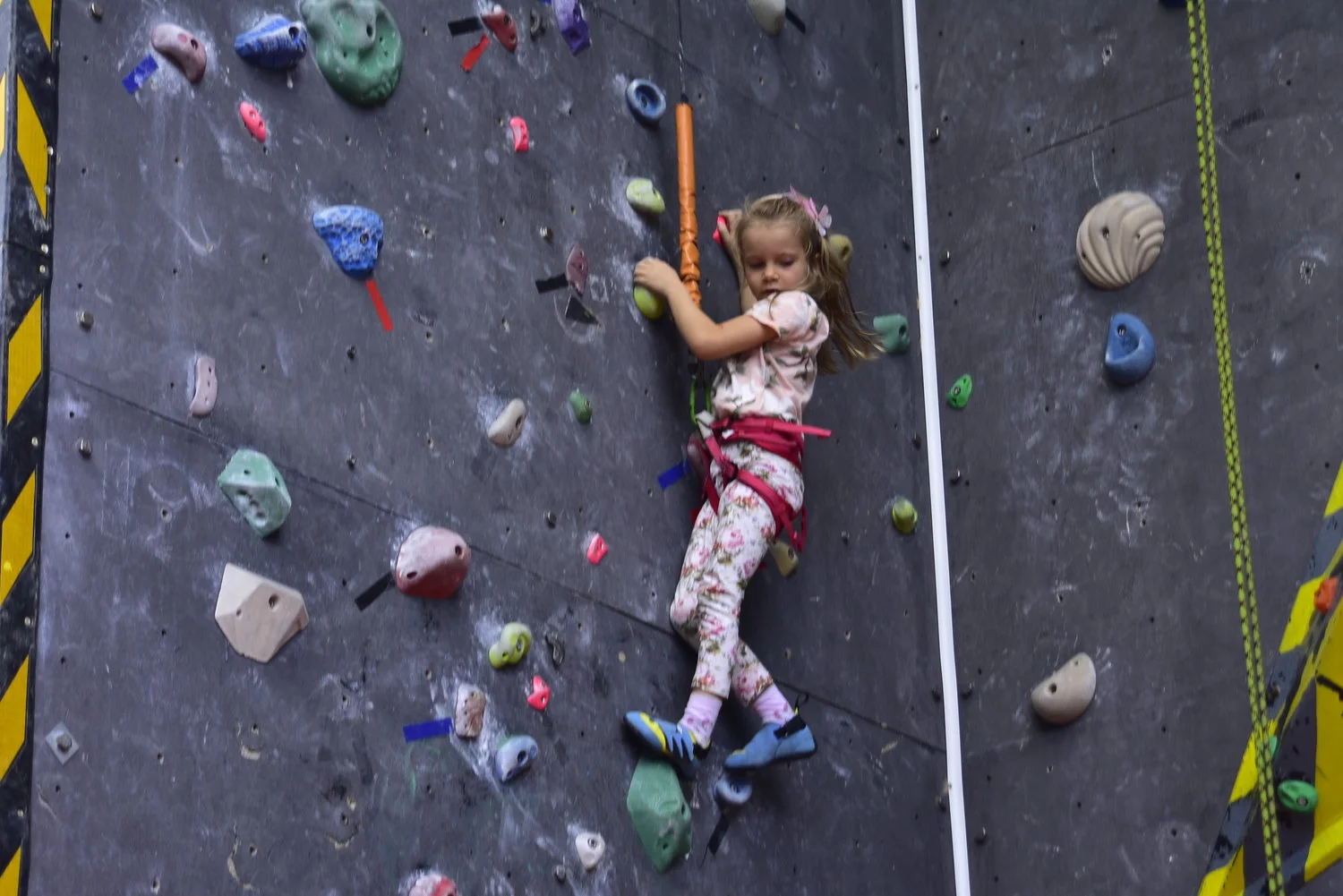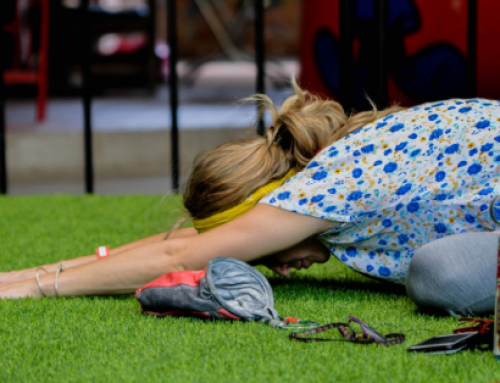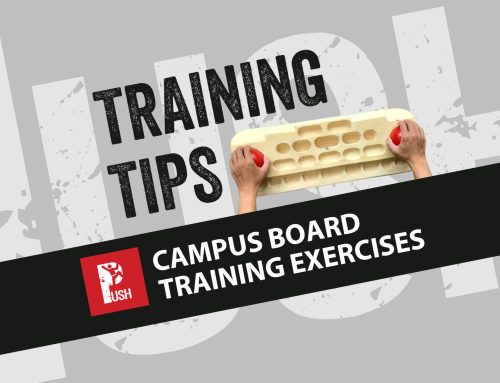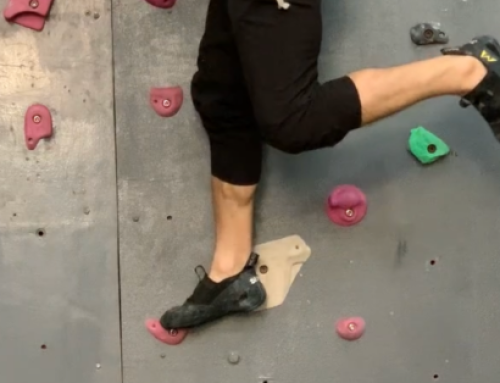“You have to be mindful and focused on the moment. It does not leave much room to let your mind wonder on things that may be going on in your life,” explained Eva-Maria Stelzer, the author of the University of Arizona report.
WALL YOGA
“Climbing is like yoga on a wall,” said Ben Grey, winner of the Novices division in the 2017 Rocktober competition. He sees climbing as a way of keeping much more than muscle conditioning.
“You’re physically pushing yourself but you can’t really think of anything other than not falling off, so it’s a great way to clear work stress,” he said.
To those new to climbing, the sport is such a physical activity that they don’t immediately grasp the psychological side of it. Climbers, new or old, will tell you that the psychological side is important and goes way beyond the simple satisfaction of being able to complete a challenge.
It’s Science, Bruh
Nor is it just climbing converts who beam and talk about mindfulness and calm. Researchers from the University of Arizona were so impressed with the mental benefits of bouldering, that they are recommending it as a treatment for depression, a conclusion also reached by medics in Germany.
The benefits of exercise on mental health have long been recognized, but climbing has a particular blend of sensations and challenges are good for the soul.
“You have to be mindful and focused on the moment. It does not leave much room to let your mind wonder on things that may be going on in your life,” explained Eva-Maria Stelzer, the author of the University of Arizona report.
This is much more than just a distraction from daily cares, or a way of briefly clearing the mind. The psychological benefits of climbing create a rich and lasting improvement in confidence and concentration.
That mindfulness and focus comes from climbing’s seemingly contradictory blend of simultaneously heightened awareness (“please don’t let me fall off this wall”) and studied calm. Or as Franklin Marlon Buenafe, instructor at Push Climbing, puts it, “It’s both excitement and peace. On the wall I’m like a horse with blinkers on – it’s that focused mindset.”
“It’s all about the mindset in climbing: what’s the next move? The next part of the puzzle? How do I finish the route?”
That element of puzzle solving, at your own pace is certainly a big part of the appeal. Of course the fact that you’re figuring out that puzzle while doing your damnedest not to fall off a high place is also part of the rush.
EFFECTS AT ALL LEVELS
You don’t have to be a seasoned climbing instructor like Franklin to reach that mental state. A quick poll of total beginners at Push gets the same sentiment – albeit phrased a little differently. “It’s somewhere between concentration and fear” visitor Thanh said smiling wryly while climbing for the first time with his grown sons Alex and Nguyen.
Climbing clears the mind and instills that kind of freeze-frame clarity that you only get from challenges that are physical, mental … and out of your comfort zone.
And, did we mention that you’re trying not to fall off a wall?
In fact that clarity outside of the comfort zone also has a remarkable effect on confidence and calm. It’s not unusual to find climbers working their way up the wall who are there precisely because they are facing down their fears – including a fear of heights. At Push Climbing we’ve had firefighters in training come to us to overcome a fear of heights before applying for their dream job.
CLIMBING FOR FEARLESSNESS, LIFE
Trainer Vy Hoang knows just how that works.
“Before climbing I used to be scared of heights,” she explains. “I would not be able to look down from tall places. So I started top roping as a way of getting used to it and found myself thinking about the moves, and about the handholds, not the height.” Now, Vy is a climbing instructor at Push Climbing, and while she still recognizes the natural nervousness of being up on a wall, her fear of heights is gone.
“Of course I still feel a little scared when climbing but a year and a half later and I can look down where I couldn’t before.”
Of course there is a down side. Like any performance-enhancer climbing brings with it the risk of dangerous addiction. Take Jun Vidal, competitive climber and Push Climbing instructor. “For me it’s so much more than a physical thing; it’s my lifestyle and my life. If I don’t climb I feel weak and sometimes I get the need to be on the wall so everything can clear out of my mind.
“Then, when you’ve finished the wall it’s ‘whew’ and everything is gone.”
So there it is. You can pay for therapy or you can come climbing.
Words by Steve Shipside.
